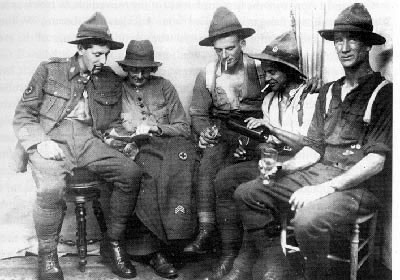
In July 1915, during the Gallipoli campaign, Ettie Rout (1877-1936) set up the New Zealand Volunteer Sisterhood and invited women between the ages of 30 and 50 to go to Egypt to care for New Zealand soldiers. In spite of government opposition, she sent the first batch of 12 volunteers to Cairo that October.
Ettie Rout arrived in Egypt in February 1916 and immediately noticed the soldiers' high venereal disease rate. She saw this as a medical, not a moral, problem and one that should be approached like any other disease – with all available preventive measures. She recommended the issue of prophylactic kits and the establishment of inspected brothels, and she tried to persuade the New Zealand Medical Corps officers to this view, with no success.
Believing that the army was not looking after the men well enough, she opened the Tel El Kebir Soldiers' Club, and later a canteen at El Qantara, to provide better rest and recreation facilities and better food. For this work she was mentioned in dispatches and in the Australian official war history.
In June 1917 the venereal disease problem was still very bad, so she went to London to push the New Zealand Medical Corps into adopting prophylactic measures. She combined the work of several researchers to produce her own prophylactic kit, containing calomel ointment, condoms and Condy's crystals (potassium permanganate). She sold these at the New Zealand Medical Soldiers Club, which she set up at Hornchurch near the New Zealand Convalescent Hospital.
At the end of 1917 the New Zealand Expeditionary Force adopted her kit and made it a free and compulsory distribution to soldiers going on leave. Ettie Rout received no credit for her role in the kit's development and adoption, and for the duration of the war the Cabinet banned her from New Zealand newspapers under the War Regulations. Mention of her brought a potential £100 fine after one of her letters, suggesting kits and hygienic brothels, had been published in the New Zealand Times. Ironically, this letter had been instrumental in the decision of the minister of defence, James Allen, to approve the issue of the kit. Others, particularly women's groups, accused her of trying to make vice safe. Lady Stout led a deputation of women to ask the prime minister, William Massey, to put an end to Rout's Hornchurch club.

Community contributions